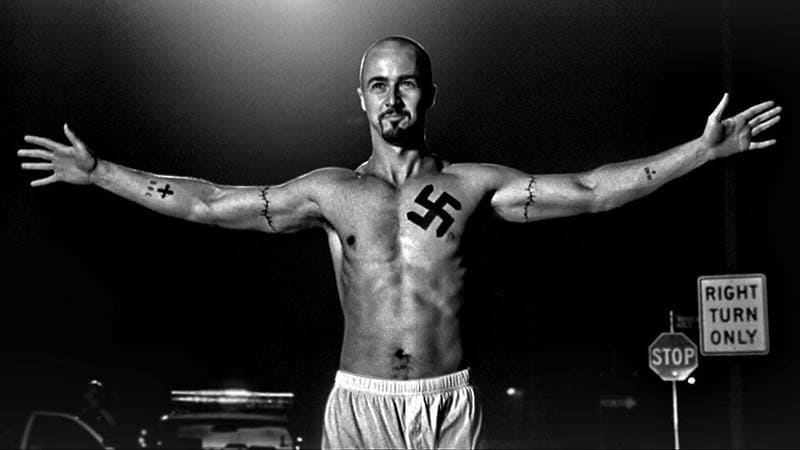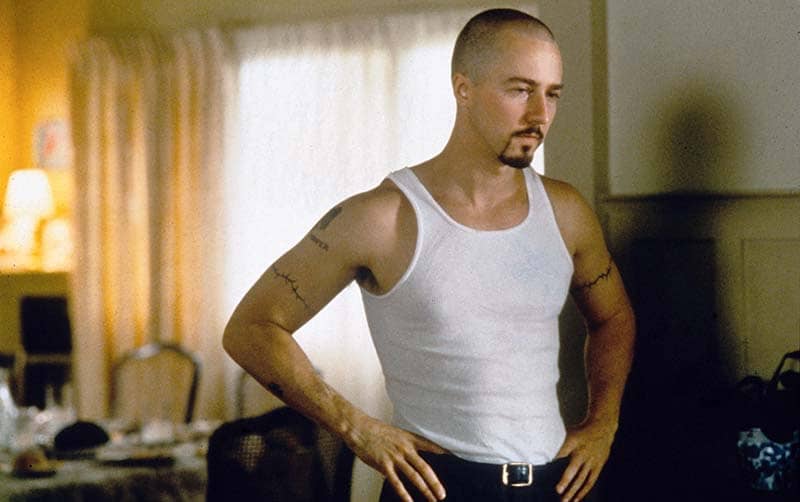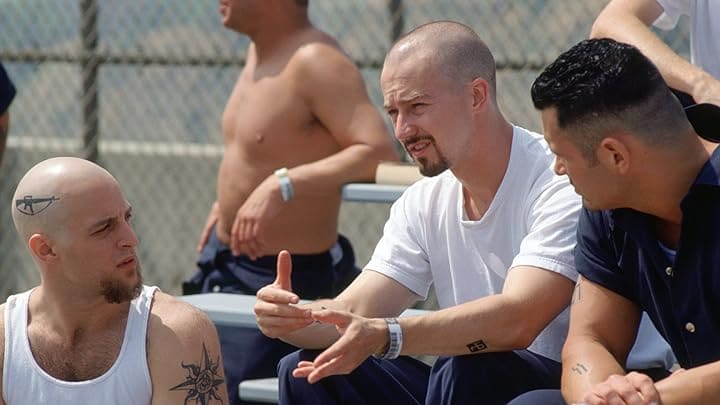
Deep-Seated Racism and Familial Ties in "American History X"
"American History X," a gripping film by director and cinematographer Tony Kaye, dives deep into the dark realms of racism and its generational impacts. Starring Edward Norton, Edward Furlong, Ethan Suplee, and Avery Brooks, the movie earned Norton an Academy Award nomination for Best Actor. At the film's core is the transformative journey of ex-Nazi gang leader Derek Vinyard (Edward Norton) as he grapples with his past actions and strives to shield his younger brother, Danny (Edward Furlong), from walking down the same path.
The Significance of Black and White Flashbacks in the Movie's Narrative

The narrative of "American History X" artfully oscillates between its present-day color sequences and black-and-white flashbacks that delve into Derek and Danny's past. This technique, much like Christopher Nolan's "Memento," differentiates timelines. However, the choice of black and white carries a more symbolic meaning, representing Derek's rigid, binary view of race. Interestingly, a stark contrast is observed in a particular color flashback featuring Derek and Danny as children playing on the beach, untainted by racial prejudices.
The Seeds of Derek's Neo-Nazi Ideology

Multiple factors contribute to Derek's descent into racism and neo-Nazism. Dr. Sweeney, during a police meeting, outlines Derek's susceptibility to the white-power propaganda disseminated by Cameron Alexander in Venice Beach. Derek's father's death at the hands of Black gang members further fueled his hatred. Yet, Danny's paper sheds light on the earlier beginnings of Derek's racist beliefs, tracing back to a conversation with their father, who subtly disparages Dr. Sweeney and the book "Native Son," marking a pivotal moment in shaping Derek's perspective.
Derek's Transformation During His Prison Sentence

Derek's prison experience plays a crucial role in his transformation. Initially aligning with fellow neo-Nazis for protection, he soon realizes their hypocrisy as they engage in dealings with non-white prisoners. This disillusionment, combined with his growing camaraderie with Lemont, a Black inmate, catalyzes a change in Derek's beliefs. The brutal attack by his former allies in the shower further cements his decision to leave his racist ideology behind, with Dr. Sweeney's poignant question serving as a turning point.
The Tragic Fate of Danny

Danny's journey mirrors that of his brother. After learning about Derek's prison experience, Danny renounces his ties with the Venice Beach Gang and Cameron Alexander. His commitment to change is evident as he toils over his "American History X" paper. Tragically, his life is cut short when he is shot by a Black student with whom he had a confrontation earlier in the movie. Danny's death, while seemingly random, is deeply intertwined with the movie's overarching themes of racism, generational hatred, and institutional factors.
